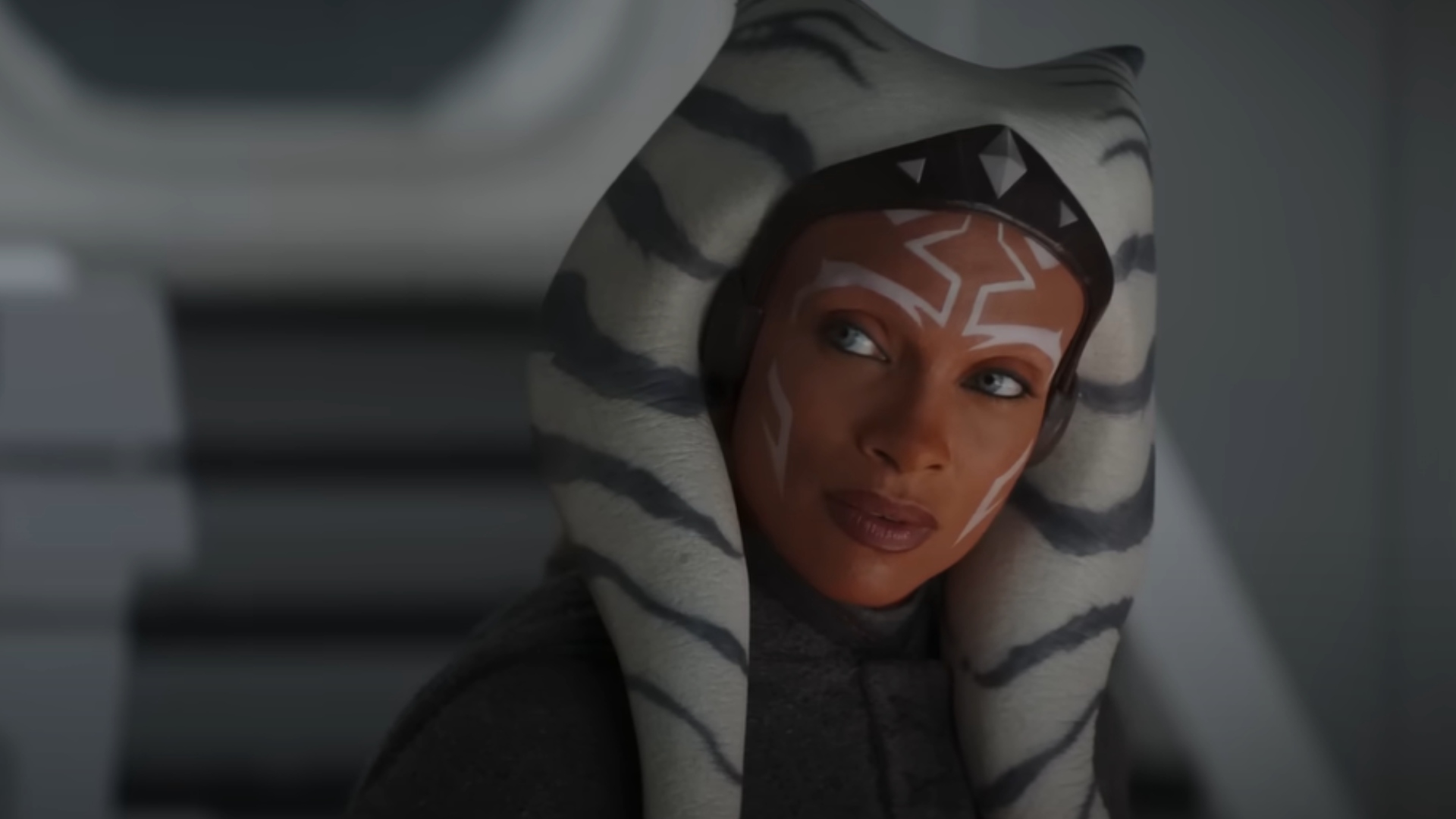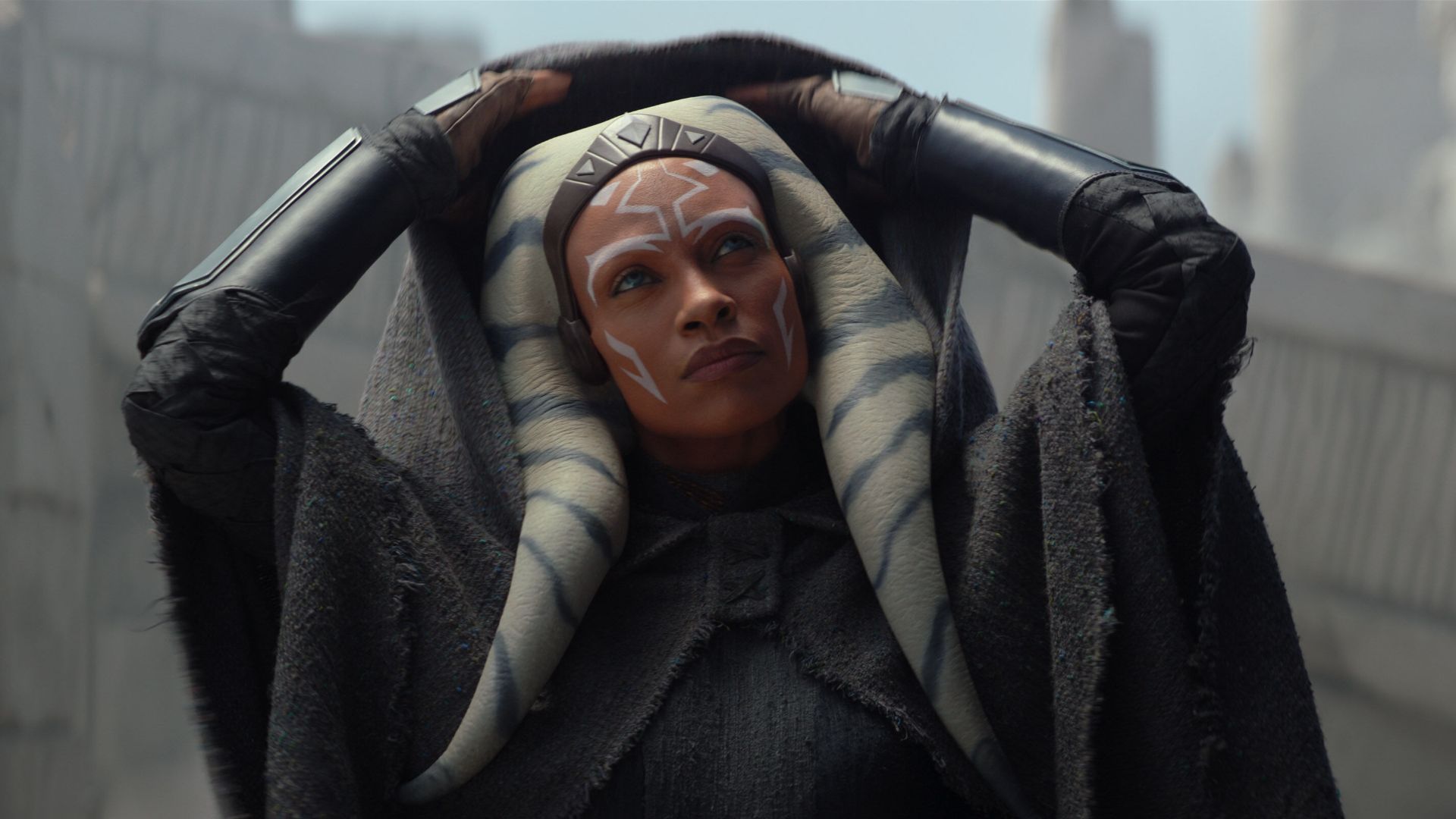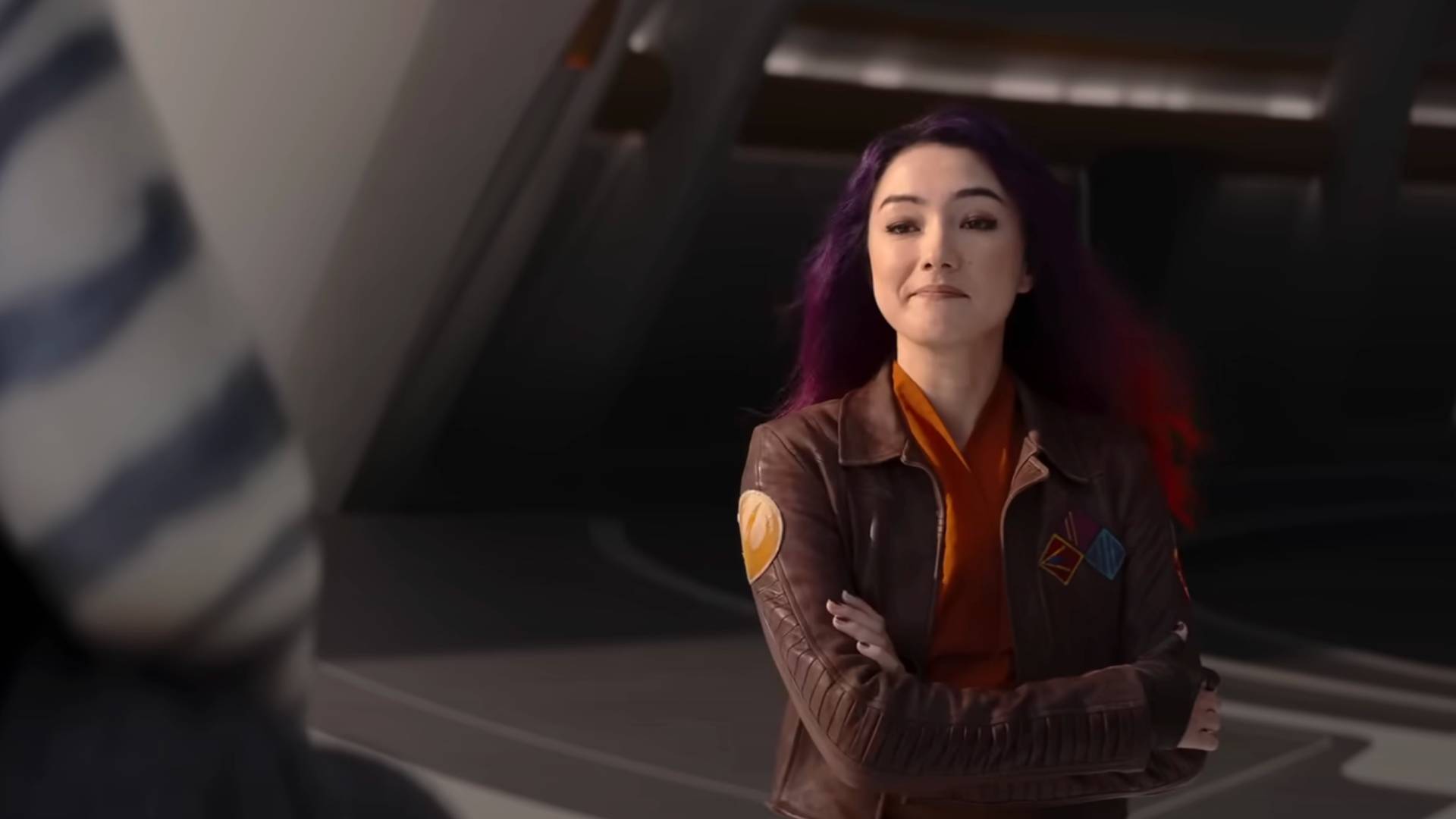
Ahsoka Tano’s live-action series has been a long time in the making. The character, who originated in Dave Filoni’s animated universe, first appeared played by Rosario Dawson in The Mandalorian, before popping up briefly in The Book of Boba Fett. Now, finally, she gets to tell her own story in a show that does justice to this beloved Star Wars hero.
Set around the same time as The Mandalorian season 3, we meet the former Jedi as she hears whispers of the return of the last remaining Imperial Admiral, Thrawn. Following a lead from Morgan Elsbeth (played once again by The Mandalorian’s Diana Lee Inosanto), the opening episode begins with Ahsoka searching for the map that will take her to Thrawn, as well as potentially saving her fallen comrade Ezra Bridger (Eman Esfandi).
The path won’t be simple though, and to find them, she’ll need the help of some very familiar faces to fans of the Filoni-verse, Hera Syndulla (Mary Elizabeth Winstead) and Sabine Wren (Natasha Liu Bordizzo). The former is now a general for the Republic, calling on her old friend when some new adversaries rear their heads, but it’s the latter whose early introduction really shines.
Master and apprentice

Much of the first two episodes focus on the key dynamic at the heart of Star Wars, that of master and apprentice. As Ahsoka’s former Padawan, Sabine reckons with her identity as a Jedi-in-training and a Mandalorian, which Bordizzo handles with poignancy. However, it’s the scenes with Dawson’s Ahsoka that really sizzle, helped by the space that director and writer Filoni gives them amid the action. A particular stand-out moment comes as they circle around their past in the bowels of a ship as Ahsoka’s unflappable, measured demeanor shows its first cracks under Sabine’s rebellious energy.
Inevitably there’s a lot between these characters that still remains unspoken, thanks to the hundreds of episodes of backstory contained in The Clone Wars and Star Wars Rebels, which are reduced to mere loaded lines of dialogue in the opening episodes. As such, there’s no avoiding that things will be missed if you’re not up to date on your animated knowledge. Elements like the weight of Ezra’s disappearance or the Anakin Skywalker name-drop will undoubtedly not hit the emotional beats that the creators intend for all viewers.
Yet, the live-action debut manages to allow just enough space for newness that it feels like you’re still in on the subtext. A lot of this is down to the clever introduction of fresh enemies in the lightsaber-wielding mercenaries Baylan Skoll (Ray Stevenson) and Shin Hati (Ivanna Sakhno). The pair are first seen in a thrilling opening that feels like peak Star Wars, complete with an epic lightsaber battle and some force trickery.
While we only see glimpses of them during the first two episodes, their dynamic – a dark parallel to that of Ahsoka and Sabine – is tantalizingly set up. Star Wars has never shied away from exploring the grayness within the dark side of the Force, and it seems there could be plenty of meat on that particular bone here to come. A special mention must also be made of Stevenson’s subtle, powerful performance, which marks one of his final roles before his untimely death earlier this year – a tribute that hangs heavy over the credits to the opening episode.
The world-building between worlds

It’d also be remiss to ignore the Loth-cat in the room. Star Wars’ TV output has known a thing or two about the importance of the cuteness factor, from The Mandalorian’s Grogu to Obi-Wan Kenobi’s precocious Leia. Ahsoka is no different, bringing a purring, cuddly Loth-cat into live-action, and shooting it straight up the most-wanted toy lists of almost every viewer (mine included).
It’s one of many details packed into the dense world-building-heavy first two episodes, and is an example of the diligent attention to detail of making a landscape that is not only familiar to Rebels and Clone Wars fans, but that also captures the tone of the wider cinematic universe. This isn’t quite Star Wars as we know it, and it’s all the better for it.
The only limit with such a big world – and history – to pack into two 45-minute episodes, comes in the pacing. Knitting together all of these stories falls into clunky territory at times, and some characters aren’t given much space for development. Hera is slightly underserved with only a few moments of wry diplomacy, while Morgan is rarely given much opportunity to be more than just a one-dimensional baddie. But this is early days, and with eight more episodes to go, at least it feels like the path forward is set, and it’s an important path to tread too.
Ahsoka represents a groundbreaking moment for the women of Star Wars. This is a franchise that has always had strong female characters at its heart, but they’ve never been given the space to lead a story as completely as this. As I’m sure is the case for many other lifelong fans of the galaxy far, far away, it’s especially moving to witness this with characters that are so fully fleshed out, flawed, and fierce.
The opening episodes establish this in spades, and in the hands of the main trio, Ahsoka marks a very special moment for Star Wars. I can’t wait to join them on where their journey across the stars goes next.
Ahsoka arrives on Disney Plus on August 22 in the US and August 23 in the UK. For more on the Star Wars show, check out our guides to:
- The history between Anakin and Ahsoka explained
- Everything you need to know about Star Wars Rebels
- What to watch before Ahsoka
- How to watch Star Wars: The Clone Wars in order
- Where does Ahsoka take place on the Star Wars timeline?
- Ahsoka release schedule explained







